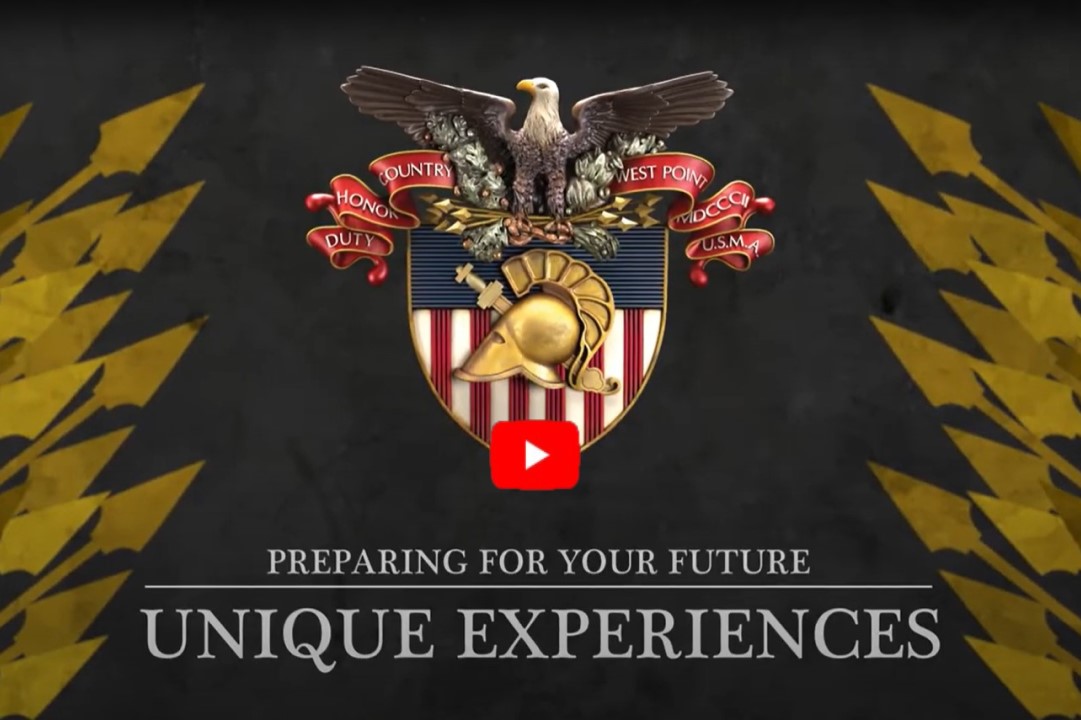Learning Beyond the Classroom
Academic internships at West Point
Learning Beyond the Classroom
Academic internships at West Point
academics-sidebarnav
Bridging Academics, Readiness, and Global Engagement
At West Point, learning doesn’t stop at the classroom door. Through Academic Individual Advanced Development (AIAD) experiences, cadets bridge academic study with real-world operations - developing the knowledge, judgment, and leadership skills essential to readiness in today’s Army and in a complex global security environment.
AIADs challenge cadets to translate classroom learning into operational impact. Every summer, they work alongside Army commands, interagency partners, and allied forces to address real-world challenges - from developing technology solutions and conducting defense research to engaging in multinational operations and cultural exchange. These experiences give cadets both the operational competence and global perspective that define the Army leader of tomorrow.
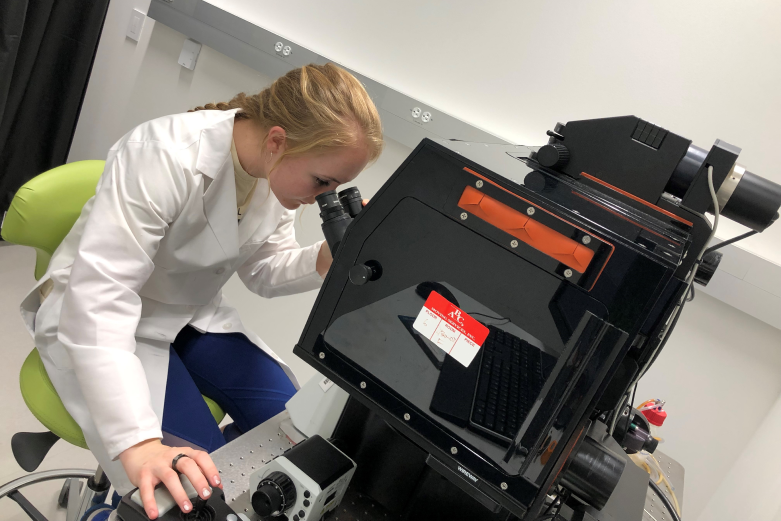
Harvard Disease Biophysics Group internship
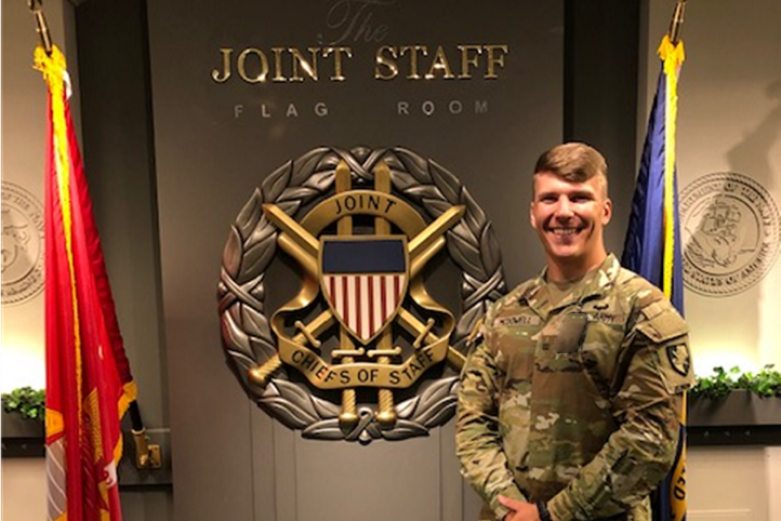
Joint Staff internship
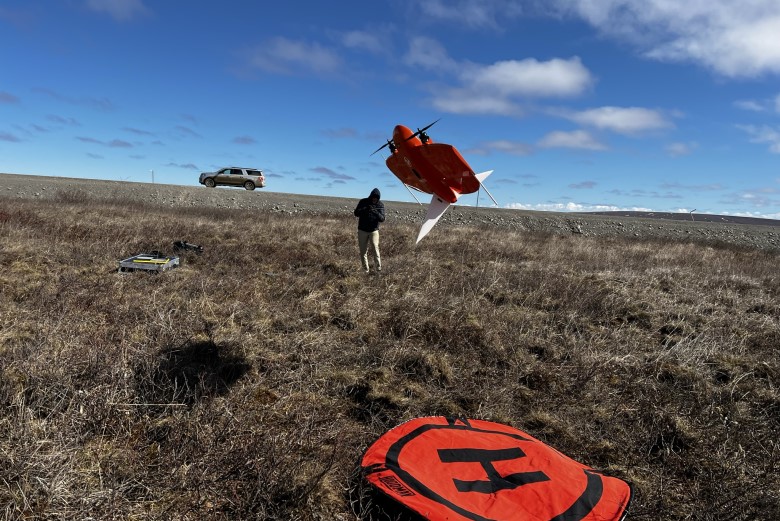
Imaging and surveying the Alaska North Slope

A Global Network of Opportunity
West Point partners with commands, agencies, allied militaries, and international organizations to create AIAD opportunities that advance both the Army’s mission and cadets’ leadership development. Cadets may:
- Conduct research on emerging technology with Army Futures Command
- Participate in cyber and information operations with Army Cyber Command
- Support logistics and sustainment with the Defense Logistics Agency
- Contribute to engineering projects with the Army Corps of Engineers
- Train and exchange with allied forces to strengthen interoperability and multinational cooperation
Each AIAD is a mission-focused leadership lab, strengthening cadets’ ability to operate in joint, interagency, and coalition environments.
Leadership in Action
AIADs are more than academic enrichment - they are leadership laboratories. Cadets operate in complex environments that demand initiative, discipline, and sound judgment. By confronting real challenges, they strengthen their ability to think critically, adapt quickly, and lead confidently under pressure.
AIADs usually occur during the summer, between academic years. Cadets typically participate in at least one AIAD during their four years, often in their junior or senior year, depending on their major and academic department.
AIADs take many forms, including:
Domestic Partner AIADs
International Experience AIADs
This three-week AIAD explores the relationship between ethics and artificial intelligence (AI). AI and machine learning technology can provide enhanced decision-making and efficiency in our personal lives, within the military and other government agencies, and across corporations. While these systems seem to be effective, what is the cost and are these systems and the decisions they produce aligned with our values?
Explore these issues during a two-part trip to Washington, D.C., and the Army's Artificial Intelligence and Integration Center (AI2C) in Pittsburgh, PA.
The cadet works with the Vehicle Integration Test Office (VITO) at NASA-JSC and supports one of the following labs/offices: System Engineering Simulator, Rapid Prototype Lab, Human Works Lab, or Space Communications System Testing. The cadet directly works on projects related to the development of capabilities enabling human spaceflight.
Cadets work alongside top engineers from Lockheed Martin and lead strategists from the Army Futures Command to better understand, develop, and integrate new technologies such as artificial intelligence, autonomous systems, advanced manufacturing, and cyber. This project endeavors to: -understand the current state of US military capability vis a vis China and Russia -understand US capability(s)/vulnerability(s) against a peer/near peer adversary -understand the most urgent US military capability/technology improvements -what are the required technologies/capabilities -do they exist and, if so, where -challenges to militarization -understand impediments to required modernization: -within the military -within the defense companies/industry -within our political process -within our economy -consider options to address impediments
The Terminal High Altitude Area Defense (THAAD) program, a crucial element of Lockheed Martin's missile defense portfolio, generates vast amounts of data through simulations. Analyzing this data is essential to identify anomalies that require further investigation and could potentially impact the system's performance. In this project, you will develop machine learning models and advanced algorithms to automate the process of isolating anomalies in the THAAD program's simulation data. By the end of this project, you will have contributed to the development of advanced anomaly detection tools that can help the THAAD program enhance its simulation data analysis capabilities. This project will provide you with valuable experience in applying machine learning and algorithm development techniques to real-world challenges and will prepare you for future careers in data science, engineering, and related fields.
Cadet would be responsible for building, integrating, and testing selected commercial, off-the-shelf uncrewed systems, which include air, land, and maritime uncrewed systems, while implementing novel command and control (C2) and telemetry links. UxS would include both rotary wing and fixed wing for use in later counter-UxS testing vents. These vehicles serve to represent the 'adversary' UxS to support counter system development and ensure U.S. Defense Department (DoD) counter-UxS technologies can effectively defeat adversary UxS threat systems. In addition, prior to testing, Cadet would be responsible for compiling required documentation to submit for flight approval(s) for UAS/airborne drones, per U.S. Army requirements.
This internship with the Director's Office, U.S. Secret Service, is part of the Tudor Scholars program. The Tudor Society sponsors eight cadet summer internships in Washington D.C. Cadets are selected based on their academic and military performance. The Tudor Society arranges meetings with high-ranking government officials, such as the Vice President and the Chief Justice of the Supreme Court, as well as dinners with government and civilian lawyers.
A three-week intensive cross-cultural program during which cadets participate in physical, marksmanship and field training, and garrison operations with a combat or combat support unit of the Bundeswehr. Training extends cadets' knowledge of Germany and German army operations. Cadets improve their competence in speaking, listening and comprehension of German. The program also enhances cultural knowledge through interaction with military counterparts and the local populace, and immersion into day-to-day life situations. Prepares semester abroad candidates to attend the Bundeswehr University in Hamburg or Munich or the Austrian Military Academy.
Cadets learn professional theories and concepts related to various business fields at Marubeni and develop further understanding of United States/Japan relationships through interactions with members of organizations related to Japanese national security. Cadets accompany members of the Marubeni group in visits to facilities related to Marubeni Corporation as well as institution related to Japanese governmental agencies.
Cadets participate in a three-week intensive study of Persian language and culture in Dushanbe, Tajikistan. Cadets live with host families to allow maximum cultural immersion.
This three-week intensive language program increases cadets' Russian language proficiency, enhances their regional expertise, and promotes cultural awareness. Following a two-week homestay and 40-hour language training program in Batumi, Georgia, cadets tour historically and culturally significant sites across Georgia and Armenia, interacting with the local population in day-to-day situations. Cadets are evaluated on daily oral performance and must maintain a journal of their experiences in Russian.
Cadets travel to Europe to conduct internships with various Offices of Defense Cooperation (ODC) and other embassy offices and sections (depends on the country assignment). Tentative locations include Serbia, Bulgaria, Georgia, Poland, Estonia, North Macedonia, Bosnia, Croatia, and several other TBD possibilities.
Cadets contribute to various projects focused on current real-world issues that affect U.S. interests in these countries, NATO, and in Europe. They also spend time and attend office calls with the Defense Attache, FAOs, and others and learn about the role of U.S. embassies in foreign countries.
Cadets may work on projects that support high-visibility Army-focused events, mil-to-mil engagements (trainings, exercises, conferences), and the foreign country's cadet military academy's summer camps. During the week, they stay at a hotel near the embassy. On the weekends, cadets can travel throughout the country and explore culturally and historically significant sites, try the local cuisine, and enjoy a culturally immersive experience
Cadets travel to Germany to intern at Africa Command (AFRICOM) J5., gaining real-world experience at a combatant command and working alongside current Foreign Area Officers (FAO). They meet with organizations within the AFRICOM and EUCOM to better understand what a FAO is, what they do, and how a combatant command works.
Cadet swill receive mentorship from a FAO O6. They may work on projects that support high-visibility events, mil-to-mil engagements, and security cooperation. On the weekends, the cadet can travel throughout the country to explore historically significant sites and enjoy a culturally immersive experience.
Research-Based AIADS
Cadets assist in experiments and analysis of test articles in wind tunnels under MACH 4 and MACH 7 conditions. Research areas include the set-up, data collection, and analysis of Schlieren measurements of flow, digital image correlation using speckle patterns, and pressure measurements using pressure sensitive paints.
Cadets study the effects of geometry, surface roughness, and weather on flow fields and boundary layers. They interact with graduate students and other research partners.
The CUBRC Aeroscience sector supports USMA by collaborating with select cadets embedded with the technical team regarding high-profile hypersonic ground testing for the Department of Defense, services, national laboratories, and industrial partners. Cadets work with subject matter experts in the CUBRC technical team performing critical ground testing tasks in support of current and future hypersonic flight vehicle programs.
Cadets obtain an understanding of what is required to execute highly complex hypersonic ground tests to validate design tools and modeling and assure reliability of these systems in flight.
The Army Geospatial Center at Fort Belvoir VA, is the Army's research and support center for geospatial technology. It is a research and development lab to test, field, and support geospatial equipment and concepts for the Army. Cadets work with state-of-the-art technologies and equipment related to mapping, surveying, GIS, GPS, and remote sensing.
Cadets interested in this AIAD should have successfully completed at a minimum Cartography and Introduction to GIS. However, Cadets who have taken Remote Sensing, Cartography, and Introduction to GIS are preferred.
This individually supervised research and study program is conducted at Los Alamos National Laboratory (LANL), a national security laboratory in New Mexico and the original nuclear weapon design site, dating back to the historical Manhattan Project of World War II.
It familiarizes students with advanced experimental procedures and techniques and acquaints them with essential features of independent research in physics or any other major - with the coordination of the AIAD coordinator for the cadets' majors. Projects cover a range of subject areas coordinated with LANL and tailored to the cadets' abilities and interests.
LANL is responsible for the design, engineering, safety and reliability of the nuclear explosives package in nuclear weapons. It possesses unique capabilities in neutron scattering, enhanced surveillance, radiography, and plutonium science and engineering. LANL also has premier programs in global security, nonproliferation, bio threats, global climate modeling and other critical problems.
USAMRIID provides medical capabilities to deter and defend against biological threat agents. Cadets will work on one of three projects: (1) molecular virology and immunology of hemorrhagic fever viruses, (2) targeted next generation sequencing of pathogens, or (3) development of immunodiagnostics.
The 4D Bio3 Program is funded by the Defense Health Program (DHP), with the purpose of promoting the development and application of advanced bioprinting and biomanufacturing technologies for research pursuant to DoD priorities.
Cadets learn to perform 3-D bioprinting as a means of developing custom engineered tissues for clinical application.
Technical or Engineering AIADs
TRISO fuel, vital for advanced reactor types and some small, transportable reactors, is an emerging technology and offers unique opportunities in research and development. Cadets intern with the leading American TRISO fuel manufacturer, gaining hands-on experience in process refinement and testing and work on high impact special projects. This AIAD offers the potential to be at the forefront in advancements in nuclear power and contributing to a cutting-edge industry.
Cadets intern on construction sites, acting as a project engineer/assistant project manager for a private sector construction company. Projects range from buildings to public infrastructure or mixed-use developments.
Cadets would work under the supervision of a project manager and work with subcontractors, engineers and architects assisting in execution of the project. Discuss preferred companies/locations with the USMA POC. Partnered construction companies include Turner Construction (offices across the US); Yates Construction (Charlotte); The Beck Group (Dallas, Fort Worth, Austin, Atlanta, Charlotte, Tampa, Denver, Boca Raton); and Keller-Moretrench (NJ/NY)
Cadets join the GE Aviation Cyber Security Threat Management organization and get hands-on experience as a cyber security intelligence analyst, event analyst, and incident responder. They work on the cyber security operations team responsible for defending and protecting GE Aviation from nation-state actors, cyber-crime, and other emerging cyber security threats.
Cadets study cyber threat activity, focused on a threat actor known to target GE Aviation business sectors, to help build or update a threat actor profile. They also process intelligence reports and other products to gather reports, extract actionable intelligence, and input indicators to a structured intelligence database.
Faculty cand Cadets collaborate with researchers from USACE-ERDC and the United States Naval Academy on a ESTCP-sponsored project to investigate coastal erosion in the village of Point Hope, AK. They are responsible for developing high-resolution maps and terrain models using small, unmanned aircraft systems (sUAS) and terrestrial laser scanning (TLS) instruments, and conducting Global Navigation Satellite System (GNSS) and total station-based surveying.
Cadets work with Armaments Center engineers and machinists to design, build and test weapon components for an experimental small arms weapon system. Cadets join discussions to brainstorm ideas for improvements, design parts in CAD, work with on-post machine shop to manufacture, and then travel to Aberdeen Proving Grounds to test.
Cadets learn how to use data driven solutions to directly impact the lives of warfighters. They explore software, data, and machine learning model engineering in support of the vision, "Build and deliver AI-enabled predictive maintenance capabilities to warfighters, maintainers, and commanders for every platform (aviation, ground, and watercraft) at all echelons from the maintenance area to the Pentagon."
Team placement is heavily dependent on the cadet's area of interest and expertise (statistics, modeling, data, team management, business processes, etc.). They work right alongside the AI scholars (active-duty captains).
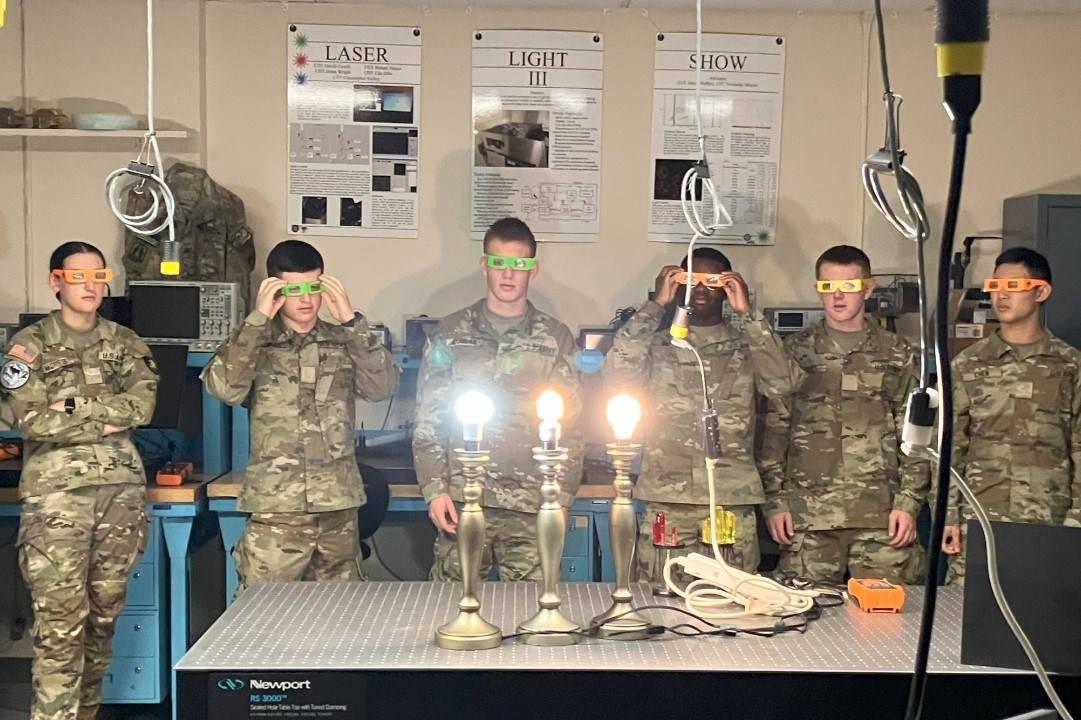
Leaders Ready for Today and Tomorrow
AIADs challenge cadets to adapt, collaborate, and make ethical decisions in dynamic environments. They give cadets more than practical experience—they cultivate adaptability, strategic thinking, and cultural awareness. When cadets return to West Point, they bring back more than just experience—they bring insight, confidence, and a broadened sense of purpose.
Through AIADs, West Point develops officers who are academically prepared, operationally ready, and globally engaged—leaders who will serve the Nation with excellence from their very first day in uniform.
Find Your AIAD Experience
Every department at West Point offers unique AIAD opportunities designed to deepen expertise, challenge perspectives, and strengthen readiness for future service. Browse department-specific AIAD opportunities to explore previous programs, projects, and experiences that align with your academic focus and leadership goals - each one a step toward becoming a leader of character prepared for the complex challenges of tomorrow.
Behavioral Sciences & Leadership (BS&L) offers a variety of international and domestic summer enrichment internship programs for cadets that are carefully selected to ensure cadets can practice the academic and leadership skills they learn in the classroom in new and challenging circumstances. Our diverse partnerships include DOD, private, non-profit, research, and academic institutions both domestically and abroad.
Chemistry & Biological Science & Engineering (CBSE) enables cadets to perform research with leaders in government and private sector laboratories, both stateside and abroad. These unique experiences broaden cadets’ perspectives and provide them with practical advanced education related to their field of study and real-world application of science in the military.
Civil & Environmental Engineering (CEE) internships enable cadets to work alongside world-class professional engineers and researchers within military units, governmental agencies, and private industry in the United States and elsewhere to gain invaluable knowledge and insight into the facilities, methods, and procedures used to design, test and improve Army systems.
Cadets in the Department of Electrical Engineering and Computer Science (EECS) can apply their knowledge in research and operational settings during a summer AIAD program, a USMA-run academic enrichment experience.
The English and World Languages (DEWL) language and cultural immersion experiences include semester-length and short-term opportunities around the world, such as the Military Immersion and Exchange Program (MIEP), spring immersions, Academic Individual Advanced Development Program (AIAD), and Military Individual Advanced Development (MIAD). Many are specific to individual language programs, so cadets have options to learn more about their language of study with real-world experiences.
Summer internship, work-study, and immersion and enrichment experiences offered by the Department of Geography & Earth Sciences (GEO) are amazing opportunities for immersion in a professional setting, diving further into academic interests, or introduction to new cultures, societies, or locations.
The Department of History & War Studies (HWS) sponsors several trip sections and AIAD opportunities every year that allow cadets to visit places about which most have only read. From local day trips around the Hudson Valley and New York City to immersive trips abroad to locations such as France and Rwanda, there is a destination for every cadet.
The Department of Law and Philosophy (DELPHI) offers exceptional internship opportunities, providing cadets with hands-on experience in military and civilian sectors. Through partnerships with top government agencies, research institutions, and corporations, cadets gain access to unique, real-world experiences.
Mathematical Sciences internship opportunities allow cadets to explore an ongoing research problem alongside DEVCOM ARL scientists and engineers.
Physics and Nuclear Engineering (PaNE) provides opportunities for cadets to work alongside world-class professionals gaining invaluable knowledge and insight into the facilities, methods, and procedures used to design, test and improve Army systems.
The Department of Social Sciences (SOSH) provides transformative experiences designed to broaden cadets' perspectives and promote civil-military engagement.
Brief description (1 -1.5 paragraphs) about the overall, general opportunities available via Systems Engineering (keep it evergreen).
The Department of Military Instruction (DMI) provides unique experiences that broaden cadets’ perspectives and provide them with practical advanced education related to their field of study to better understand real-world applications of security studies. These experiences enable cadets to perform research alongside leaders in organizations related to defense, government, policy, diplomacy, and national security.
The Department of Physical Education (DPE) works with Army agencies and civilian institutions to develop summer educational and training experiences for kinesiology majors.
Interested Cadets
As part of the Academic Individual Advanced Development (AIAD) program, academic departments provide internship and immersion opportunities. Cadets can contact their department academic counselor or corresponding center or institute for more information on the diverse enrichment experiences available both during the academic year and over the summer.
MIADs
Military Individual Advanced Development (MIAD experiences are immersive military training opportunities that extend beyond the standard curriculum. They are designed to develop cadets' leadership skills, tactical proficiency, and operational readiness.
PIADs
Physical Individual Advanced Development (PIAD) opportunities provide cadets with specialized physical training experiences that challenge cadets physically and mentally, fostering teamwork, mental and physical courage, and a sense of pride upon successful accomplishment.
